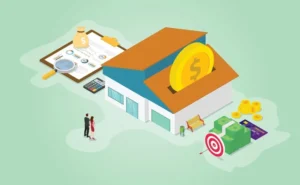A Comprehensive Guide: Mortgage Document Requirements

Introduction: When embarking on the journey to secure a mortgage for your dream home, understanding the documentation required is paramount. In this comprehensive guide, we will delve into the various documents you need to provide to get a mortgage and shed light on their significance.
Contents
- 1. Personal Identification
- 2. Proof of Income
- 3. Employment Verification
- 4. Bank Statements
- 5. Credit History
- 6. Asset Documentation
- 7. Debt Information
- 8. Proof of Residence
- 9. Gift Letters (if applicable)
- 10. Legal Documents (if applicable)
- 11. Property Information
- 12. Additional Requirements
- Conclusion
- Facts and Statistics on Mortgage Document Requirements
1. Personal Identification
- To initiate the mortgage application process, you must furnish valid identification documents. These typically include your driver’s license, passport, or Social Security card. These documents serve as proof of your identity and citizenship status.
2. Proof of Income
- Lenders want assurance that you possess a stable income to repay the mortgage. To demonstrate this, you’ll need to provide documents like pay stubs, W-2 forms, and tax returns. These substantiate your earning capacity and financial stability.
3. Employment Verification
- Lenders verify your employment history to assess your job stability. Employment verification letters from your current employer play a crucial role here. They confirm your position, income, and length of employment.
4. Bank Statements
- Bank statements offer insight into your financial habits and the ability to cover down payments and closing costs. You’ll be required to submit recent bank statements as part of the documentation process.
5. Credit History
- Your credit score significantly impacts your mortgage eligibility and interest rates. Request your credit reports and scores to provide to lenders. A healthy credit history demonstrates your creditworthiness.
6. Asset Documentation
- Beyond income, lenders assess your overall financial health by considering your assets. Prepare documentation related to savings accounts, investments, and retirement accounts, as these may be used for down payments or reserves.
7. Debt Information
- Existing debts and financial obligations influence your mortgage approval. Disclose your outstanding loans, credit card balances, and other financial responsibilities as part of the application process.
8. Proof of Residence
- Proof of your current and past residences is vital for lenders. Utility bills, rental agreements, or mortgage statements serve as suitable documents to verify your residential history.
9. Gift Letters (if applicable)
- If you’re receiving a financial gift from a family member for your down payment, a gift letter is essential. It outlines the donor’s relationship to you, the gifted amount, and the statement that it’s not a loan.
10. Legal Documents (if applicable)
Special circumstances, such as divorce or bankruptcy, may necessitate legal documentation. Include documents like divorce decrees or bankruptcy discharge papers if they apply to your situation.
11. Property Information
When applying for a mortgage, you’ll need to provide details about the property you intend to purchase. This includes the purchase contract, property appraisal, and any other relevant property-related documents.
12. Additional Requirements
Some lenders may request additional documents based on their specific criteria. It’s crucial to maintain open communication with your mortgage lender to address any unique document needs.
Conclusion
Navigating the mortgage application process can be smoother when you’re well-prepared with the required documents. By understanding and providing these essential papers, you’ll enhance your chances of securing the mortgage that paves the way to homeownership.
Facts and Statistics on Mortgage Document Requirements
1. Income Verification:
- Fact: Lenders typically require proof of stable income to assess your ability to repay the mortgage.
- Statistic: In 2020, the median household income in the United States was $68,703, according to the U.S. Census Bureau.
2. Credit Scores:
- Fact: Credit scores play a significant role in mortgage approval and interest rate determination.
- Statistic: The average FICO credit score for approved conventional mortgage loans in the U.S. was 751 in 2020, as reported by Ellie Mae.
3. Down Payments:
- Fact: Down payments are a crucial part of mortgage applications, and the amount required can vary.
- Statistic: In 2020, the median down payment for first-time homebuyers in the U.S. was 7% of the purchase price, according to the National Association of Realtors.
4. Debt-to-Income Ratio:
- Fact: Lenders evaluate your debt-to-income ratio (DTI) to gauge your financial stability.
- Statistic: The average DTI ratio for approved conventional mortgage loans in 2020 was 23%, based on Ellie Mae’s data.
5. Employment History:
- Fact: Stable employment history is a key consideration for lenders.
- Statistic: The Bureau of Labor Statistics reported that the average length of employment with the same employer in the U.S. was 4.2 years in 2020.
6. Mortgage Approval Rates:
- Fact: Mortgage approval rates can vary based on economic conditions and lending standards.
- Statistic: The mortgage approval rate in the U.S. stood at around 75% in 2020, according to the Mortgage Bankers Association.
7. Mortgage Documentation Fraud:
- Fact: Mortgage fraud remains a concern, making accurate documentation crucial.
- Statistic: In 2020, the Financial Crimes Enforcement Network (FinCEN) reported 1,561 cases of mortgage fraud in the U.S.
8. Digital Mortgage Applications:
- Fact: Technology has streamlined the mortgage application process, allowing for more digital submissions.
- Statistic: In 2020, 65% of mortgage applications in the U.S. were completed digitally, as reported by ICE Mortgage Technology.
These facts and statistics underscore the importance of preparing and providing accurate documentation when applying for a mortgage, as it significantly influences the approval process and terms of your loan.








